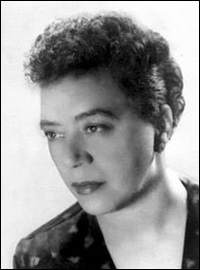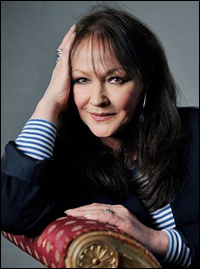
London is getting more like New York every day.
It's certainly getting noisier. First-time visitors to New York used to feel assailed by street noise and yearn, at least until their ears adjusted, for the relative quiet of home. Now the clamoring, clanking, subway, building, banging, mobile phone, and simple shouting that characterise New York streets are easily being challenged by London—even in theatreland.
The latest hilarious incident concerned the far-from-regal but very down-to-earth Helen Mirren. As a theatrical dame, she is beyond any kind of criticism, but, as if her terrestrial status as a great actor and as a Dame of the British Empire weren't enough, she's currently performing as Queen Elizabeth the Second in a play called The Audience, so she's royal, as well as divine. The other evening her sold-out, but very quiet, performance was effectively drowned out by the din of a band of drummers in the street outside the Gielgud Theatre on Shaftesbury Avenue, a famous road lined with playhouses at the very heart of theatreland.
Being Helen Mirren, and not one just to send a theatre usher out to shush the disturbance, she battled through until intermission and then, in full Queen of England regalia, shot out of the stage door and accosted the London Samba Band, who were literally trying to drum up business for the Lesbian Gay Bisexual Transgender music festival "As One In The Park." Using some distinctly un-regal language, Mirren flew at them, yelling at them to “Shut the f*** up!!!”
For a moment, the drummers must have thought they were being sworn at by the Queen herself. They immediately stopped playing, apologised profusely, and headed off to safer streets than the centre of the theatre world, but not before explaining to Dame Helen who they were and what they were doing there. I couldn't help speculating that, if such a melée were to happen on Broadway, the fracas would be engulfed in gun-waving police officers and would escalate to a full-scale incident. As it was, the local bobby stood there, grinning, Dame Helen returned for the second half of The Audience, and the drummers retreated into the noisy night. The following day, she was photographed, beaming, in a new white t-shirt which advertised the LGBT Festival on the front. On the back, under a charming picture of a drum, was hand-lettered, “Yes, please, just not outside a theatre.”
| |
 |
|
| Mabel Mercer |
Such a singer was the immortal Mabel Mercer, such a musician was Bobby Short, and, for those of us fortunate enough to have seen them, they epitomised the song magicians. There are a few performers—Nijinsky, Gigli, Paderewski, Gielgud—whose names conjure up not only the era in which they lived but the essence of the art they practiced. They were, and remain, legends. So when the Mabel Mercer Foundation, which presides over all of New York cabaret, gives a memorial concert to celebrate Mercer and Short on the 45th anniversary of their famous Town Hall concert in 1968, everybody wants to participate. The line-up is a roll-call of today's star cabaret singers, nearly all of whom have appeared, or are booked to appear, at Le Crazy Coqs, and their brief is to perform contemporary interpretations of the songs made famous by the two legends.
Two other notable London-to-New York transfers to celebrate are the wonderful Red Velvet. Lolita Chakrabarti's award-winning play is about Ira Aldredge, the first black American actor to be cast as Othello in 1833, in a theatrical London that was not ready for his realistic acting nor for his ethnicity. Chakrabarti's husband, Adrian Lester, is currently playing Othello in London at the National Theatre to sold-out audiences and cheers from the critics. He played Ira Aldredge with a heart-breaking intensity in London and will move with the produciton to New York. Not to be missed.
| |
 |
|
| Frances Barber stars as Julius Caesar |
Two plays within a week celebrate, if you can call it that, women in the workplace. One is British, one American. John van Druten, who wrote the stories on which the musical Cabaret was based, also wrote London Wall, a fine play, written and set contemporarily in 1931, about what it was really like to be a typist in a London lawyer's office. These single women—married women need not apply and those who marry are dismissed—are desperate for a husband because the alternative is lifelong boring toil for a pittance, living in a dismal room, with no prospect of escape. From this unpromising material, van Druten crafts a picture of the life of an office and of the very different young women who work there, with sympathy, humour and no lack of anger at their plight.
London Wall is at the new St. James Theatre in Victoria, near Buckingham Palace, the first new theatre to have been built in London for many years. Now, along comes another, the brand new Park Theatre in Finsbury Park—not, until now, a particularly theatrical neighbourhood. Sleek, shiny, and very user-friendly, this two-theatre space has learned lessons from all the 35 London theatres the artistic director and architect trawled when cogitating what the Park should be.
The results are now on view in These Shining Lives, an American play by Melanie Marnich which begins in Chicago in the 20s, when young women were beginning to enter the world of work and the independence it could give them. The play is a true story about four young women who go to paint clock faces for the Radium Dial Company. Their work gives them much happiness and fulfilment until they all become ill and the cause is traced, by one courageous doctor, to the radium itself. The company fires them when they become ill, not accepting any blame, and one of them, at her wits' end, sues. Even though we know the outcome, the journey is worthwhile and the insight into womens' lives at other times in our history, on both sides of the Atlantic, is fascinating.
(Ruth Leon is a London and New York City arts writer and critic whose work has been seen in Playbill magazine and other publications.) Check out Playbill.com's London listings. Seek out more of Playbill.com's international coverage, including London correspondent Mark Shenton's daily news reporting from the U.K.










